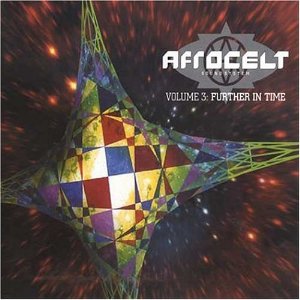
| Artist: | Afro Celt Sound System |
| Title: | Volume 3 - Further in Time |
| Released: | 2001.06.18 |
| Label: | Real World |
| Time: | 70:41 |
| Producer(s): | Simon Emmerson |
| Appears with: | Peter Gabriel |
| Category: | Pop/rock |
| Rating: | ********.. (8/10) |
| Media type: | CD |
| Purchase date: | 2001.06.18 |
| Price in €: | 16,71 |
| Web address: | www.afrocelts.org |